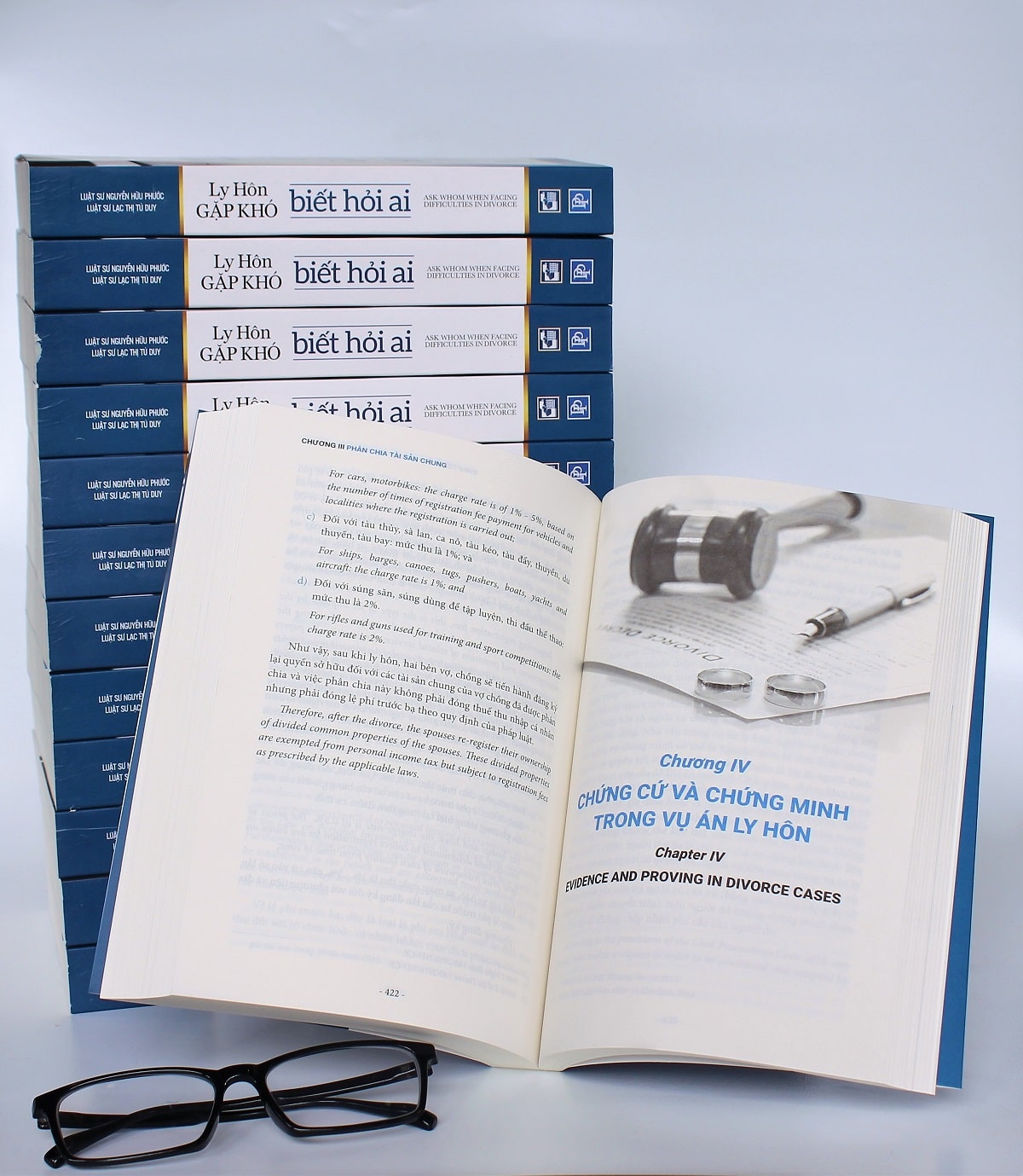- Which document is considered to be evidence under the Civil Proceedings Code?
Evidence is an indispensable part of every divorce case to clarify the objective truth and to be the basis of proving the spouses’ requests are legitimate. One of the most common sources of evidence today is documents provided to the Court by the spouses or collected by the Court. In order for a document to be regarded as evidence under the Civil Proceedings Law, this document must meet the following requirements:
- This document must be authentic, accurate, and not falsified or with incompatible version. For example, a falsified debt receipt made by a third party with a forged signature is not an acceptable evidence;
- This document is submitted by the spouses, authorities, organisations, and other individuals to the Court during the proceedings or collected by the Court in accordance with order and procedures set out by the Civil Proceedings Code 2015. If the submission or collection of the document does not comply with the order and procedures of the Civil Proceedings Code 2015, the submitted and collected documents will not be regarded as evidence. For example, when the plaintiff does not want to submit evidence at the meeting for evidence announcement and mediation at the request of the Court, but intentionally conceals the evidence until the opening of first instance trial in order to put the defendant in a disadvantage position, the Court can dismiss this evidence; and
- The documents used by the Court as a basis for determining objective circumstances of the case as well as the spouses’ requests or objections are grounded and lawful. Thus, any document with no relevance to the case is still not regarded as evidence, even though it is true and lawfully submitted to the Court.
Documents regarded as evidence under the law can be obtained from various sources. They can be readable, visible, audible documents and electronic data. For each source, there are additional legal requirements for documents from such source to be considered as evidence by the Court. The current sources and requirements for each source are as follows:
- The readable document must be original or notarised/certified copies or issued/certified by the competent authorities and organisations. The original may be a master copy or a version which can be used as basis for duplication. For example: a notarised copy of the child’s birth certificate or that of a certificate of land use right;
- Audible and visible documents must be accompanied by a written document of their origin or report for the sound and video recording of them. These documents may be audiotapes, audio discs, videotapes, video discs, films, photos, etc. If the spouses fail to produce the required documents above, the audible and visible documents provided by the spouses will not be considered as evidence. For example, a plaintiff who submits a tape of the defendant’s speech to the Court, must send a written document regarding that recording to the Court.; and
- Electronic data messages are in the form of electronic data exchange, electronic documents, electronic mail, telegraph, fax, and other similar forms as prescribed by the Law on Electronic Transactions.
Any document satisfying all the requirements is considered to be evidence in a divorce case.
2. Can a text message or a photograph of one’s inappropriate affair with someone be considered as evidence of adultery?
For phone message
Text messaging is a form of electronic data messages which can be considered as evidence according to Article 95.3 of the Civil Proceedings Code 2015. Its value as evidence will be assessed according to the Law on Electronic Transaction 2005. Article 14.2 of the Law on Electronic Transaction 2005 states that “The value as evidence of a data message is determined on the reliability of the way it is created, stored or transmitted; how to ensure and maintain the integrity of the data message; how to identify its creators and other relevant factors”. Thereby, it can be concluded that although such messages could be considered as evidence, they are not evidence with high value. Text messages are not reliable as they can be falsified easily, such as when a person takes someone else’s phone or sim card to message himself or herself. The messages do not either constitute a guarantee of the upholding of the integrity of the data since they are rarely presented in full text, but often in fragmented sentences and can easily be deleted. The author of these messages is not easily identifiable when trying to determine whether the alleged person is the true sender of the texts. Therefore, the Court will still consider these messages but the litigant providing the messages still needs to provide other evidence to convince the Court that his or her spouse is committing adultery.
For photographs of one’s inappropriate affair with someone
A photograph
is categorised as a visible document under the Civil Proceedings Code 2015. It can only be considered as
evidence when being presented together with the documents showing its origin in case the litigant
takes the
photos or a written statement from its provider to the
person submitting it regarding origin of the photos or a document of events relating
to the recording/taking of the photos[2].Therefore, in order for a person to have the photos of the other spouse’s inappropriate
relationship with another person be evaluated by the Court, he or she must have a written statement of the photos’ origin, showing how he or she obtained them (self-taking or hiring
a private detective), or a confirmation from the person who provided him or her
with the photos. Otherwise, the photos will not be considered to be evidence to
be proved in a divorce case.
[2] Article 95.2 of the Civil Proceedings Code 2015.
If you would like more information on how we can assist you with divorce issues, please contact us at: +84 (28) 36223522 or email us at info@phuoc-partner.com

